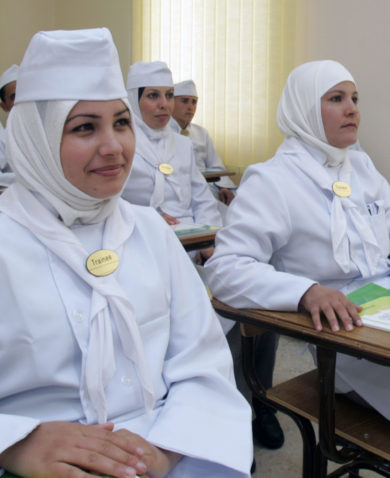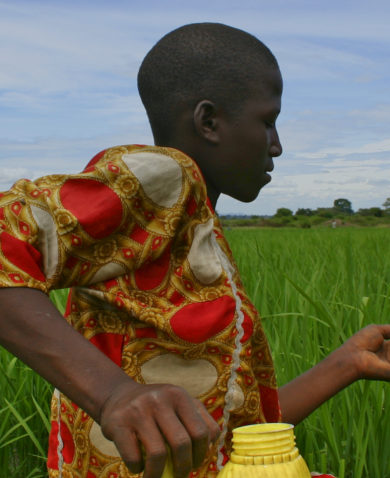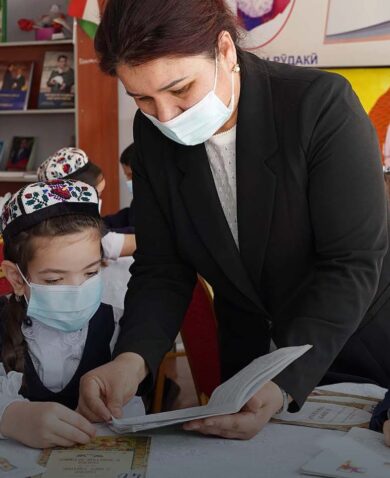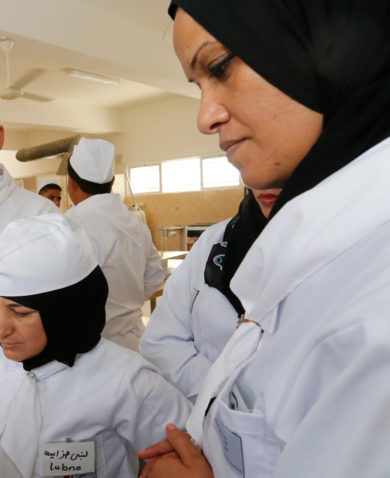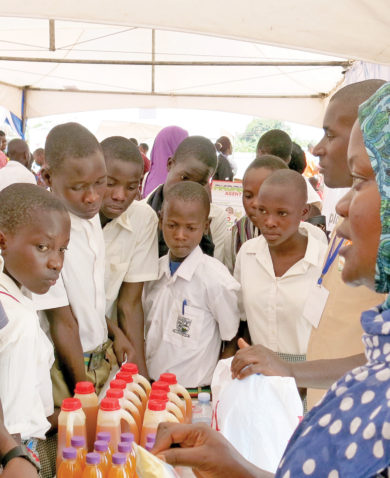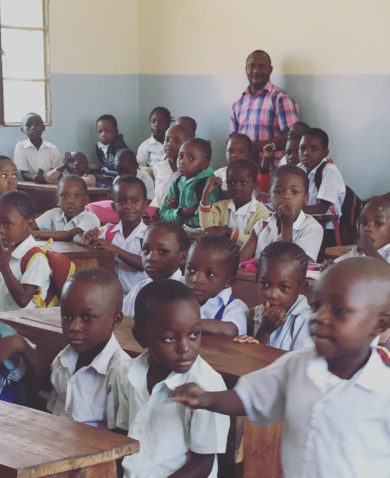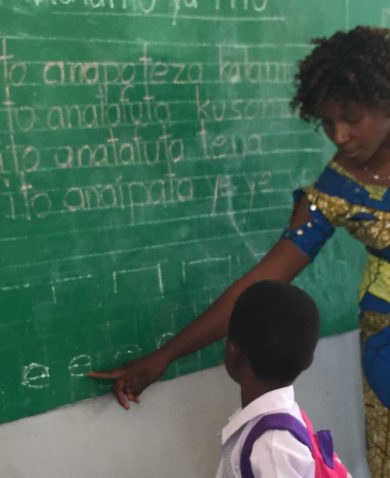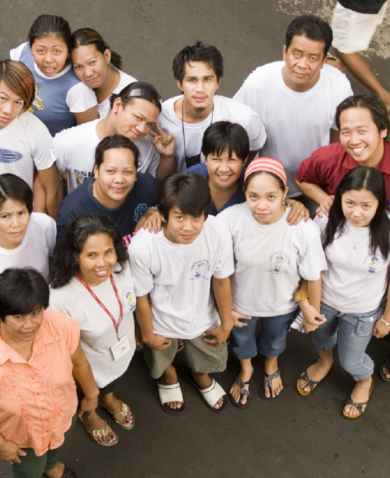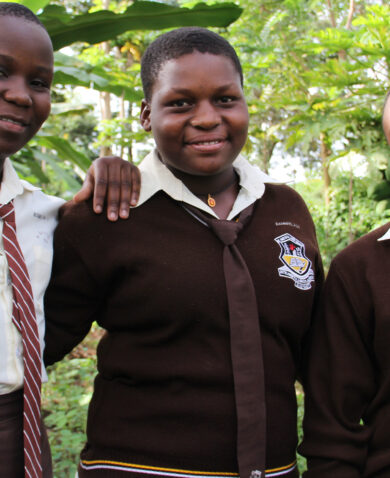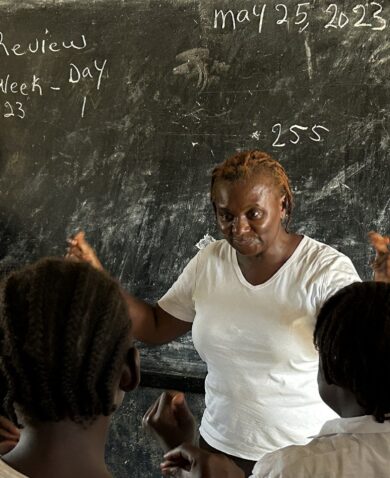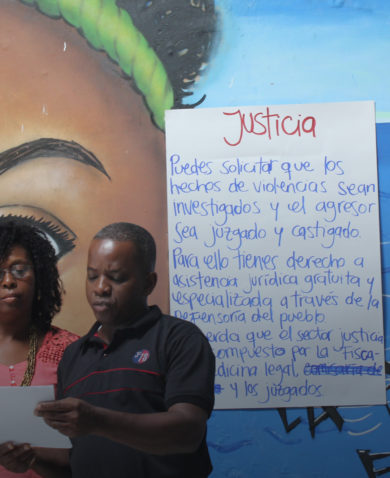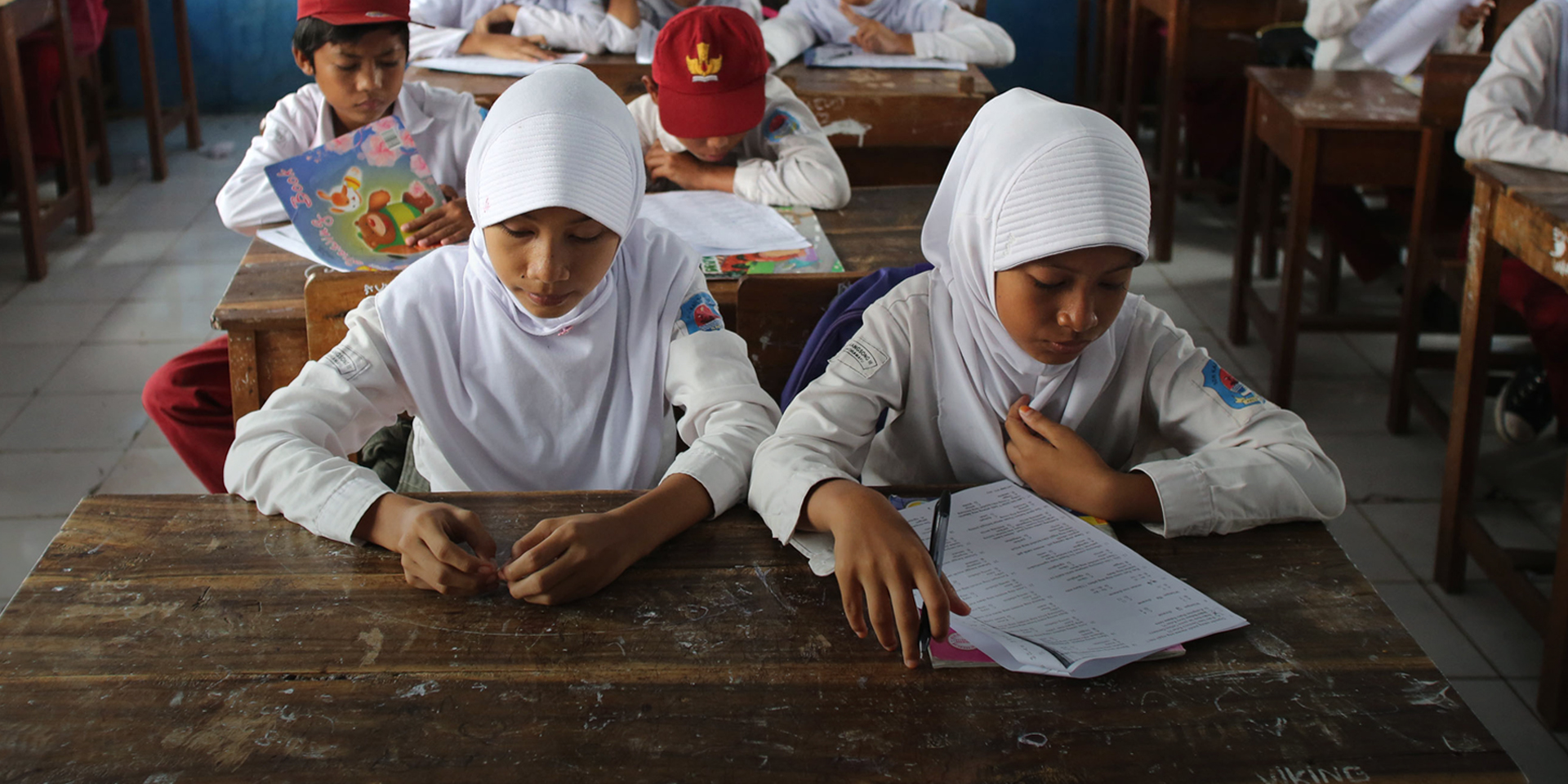
Creating Space for Youth to Thrive: A Philosophy on Youth Development
August 12, 2019 | 4 Minute ReadAs Chemonics celebrates International Youth Day, we commit to providing youth with quality services and opportunities — helping them to further contribute their unique aspirations, energy, and ideas.
The celebration of International Youth Day today, August 12, calls for the global development community to reflect on its work with young people across sectors. In this spirit, Chemonics is excited to share our corporate philosophy on youth development — the foundational tenets on which we build our work and the core areas in which we support today’s generation of world leaders.
At Chemonics, we believe in helping youth succeed by putting them in the driver’s seat to improve the structures around them. We believe that if we support youth to gain the skills they need, foster partnerships for change, and work with governments and other young people to create an enabling environment for youth development, then outcomes will improve.
To maximize our impact, Chemonics relies on four cornerstones to anchor our approach for youth development around the world. They form the basis on which we build all our programming in youth development.
Cornerstones of Youth Development
1. Pursue Gender Equality and Inclusion
We use gender and inclusion analyses across sectors to examine the roles, rights, and responsibilities of men, women, and other vulnerable groups, as well as the contextual obstacles, opportunities, and choices available to them. Women, men, migrants, individuals with disabilities, and religious minorities all have different roles within their communities — roles that are shaped by social, cultural, religious, and economic factors.
2. Engage Communities
We cannot assume that a country, city, or district is homogeneous. Each community has different institutional relationships, barriers, and opportunities to support change for young people. Therefore, we ensure we have a robust understanding of the local communities and stakeholder entry points to reach youth.
3. Promote Youth Contribution
Chemonics is committed to engaging young people as a source of change for their own and their communities’ development. We train youth to conduct thorough analyses of their local contexts to inform the work we are supporting. We also engage youth in focus groups, offering a safe space for them to talk about the real needs of their communities.
4. Collaborate, Learn, and Adapt
Chemonics is committed to monitoring, evaluating, and learning from all its work with young people. Our strong relationships with local partner organizations allow us to reflect on essential areas of measurement, contextualize programs, and contribute to the evidence base of our programming.
Core Areas for Youth Success
Building on these cornerstones, we implement our work in three core areas to set youth up for success: building a foundation of skills and assets, fostering economic change and sustainability, and supporting enabling environments.
1. Building a Foundation: Skills and Assets
Chemonics recognizes the importance of strengthening the skills and assets of young people, 89.7 percent of whom live in emerging and developing economies. An estimated 500 million youth are unemployed or hold insecure or vulnerable jobs. Chemonics is committed to working with partners to empower youth to act as agents of change in their own lives. The success of this generation of business owners, innovators, policymakers, and world leaders depends on the provision of comprehensive soft- and life-skill training.
From robotics programs in Moldova to early grade reading programs in the Kyrgyz Republic, we know that high quality and relevant education are key to providing youth with the confidence, skills, entrepreneurial know-how, leadership, positive attitudes, and technical skills to succeed. We intentionally work to develop cross-sectoral interventions at the policy and programmatic level to build human capital of young people and empower them to succeed in a knowledge-based society.
2. Fostering Economic Change and Sustainability
Getting the global economy on track to reap a demographic dividend, create new prosperity, protect the planet, and eliminate extreme poverty will be difficult unless the public and private sectors work together to harness youth’s potential. Chemonics bridges the gap between youth and the private sector, helping youth develop careers. We’ve seen the benefits of private sector engagement in countries like Uganda, where one agriculture activity has collaborated with the private sector, workforce institutions, national organizations, and Ugandan leaders to increase economic opportunities for about 350,000 youth.
We support self-employed youth and young entrepreneurs to access markets, increase income, and grow revenues. Chemonics accelerates innovation in products, services, and delivery, while building a robust evidence base to improve young people’s success in work and marketplaces. In South Africa, we’re connecting public institutions and investors to help schools prepare meals for students faster and more sustainably through green technology.
Through practical research and active engagement with public and private stakeholders, we work with partners to scale innovative solutions. We augment inaccessible traditional financial products by designing or facilitating new financial products and services (such as group lending and savings and micro-credit) and build partnerships from the ground up to support these efforts.
3. Supporting Enabling Environments
Youth in developing countries around the world frequently feel disenfranchised and disempowered when it comes to making a difference in their communities, regions, and nations. In fact, 66.5 percent of youth aged 18 to 29 believe their governments don’t care about their opinions. As a result, civic participation among youth — at the community and national levels — may be limited, and youth are often unaware of their fundamental civil rights and responsibilities. Chemonics strengthens policy and legal environments to protect and empower young people.
We empower young people to engage in and create policies across many issues, including child marriage and protection, adolescent health, and education. We see this in our work in Afghanistan, where we are paving the way for women’s increased participation in decision-making roles in the government and increasing local community support for women through innovative communications campaigns.
We work within justice systems to ensure the rule of law reaches youth and to build accountable and transparent national or municipal governance platforms and service delivery processes that are more participatory and responsive to youth. In Mexico, through the Juntos Para la Prevencion de la Violencia project, youth are at the helm promoting the adoption of evidence-based crime and violence prevention practices and policies within local systems and cooperating with civil society organizations that work with vulnerable populations.
In global development, nearly all our work has a direct or indirect impact on young people across the world. As a community, we need to support them to harness their own strength and act as a catalyst to empower young people to thrive. As we celebrate International Youth Day, we at Chemonics commit to providing youth with quality education, health services, work or livelihoods, and civic and political engagement opportunities. In this way, we can create space for youth to contribute their unique aspirations, energy, and ideas to advance more stable and prosperous societies.















